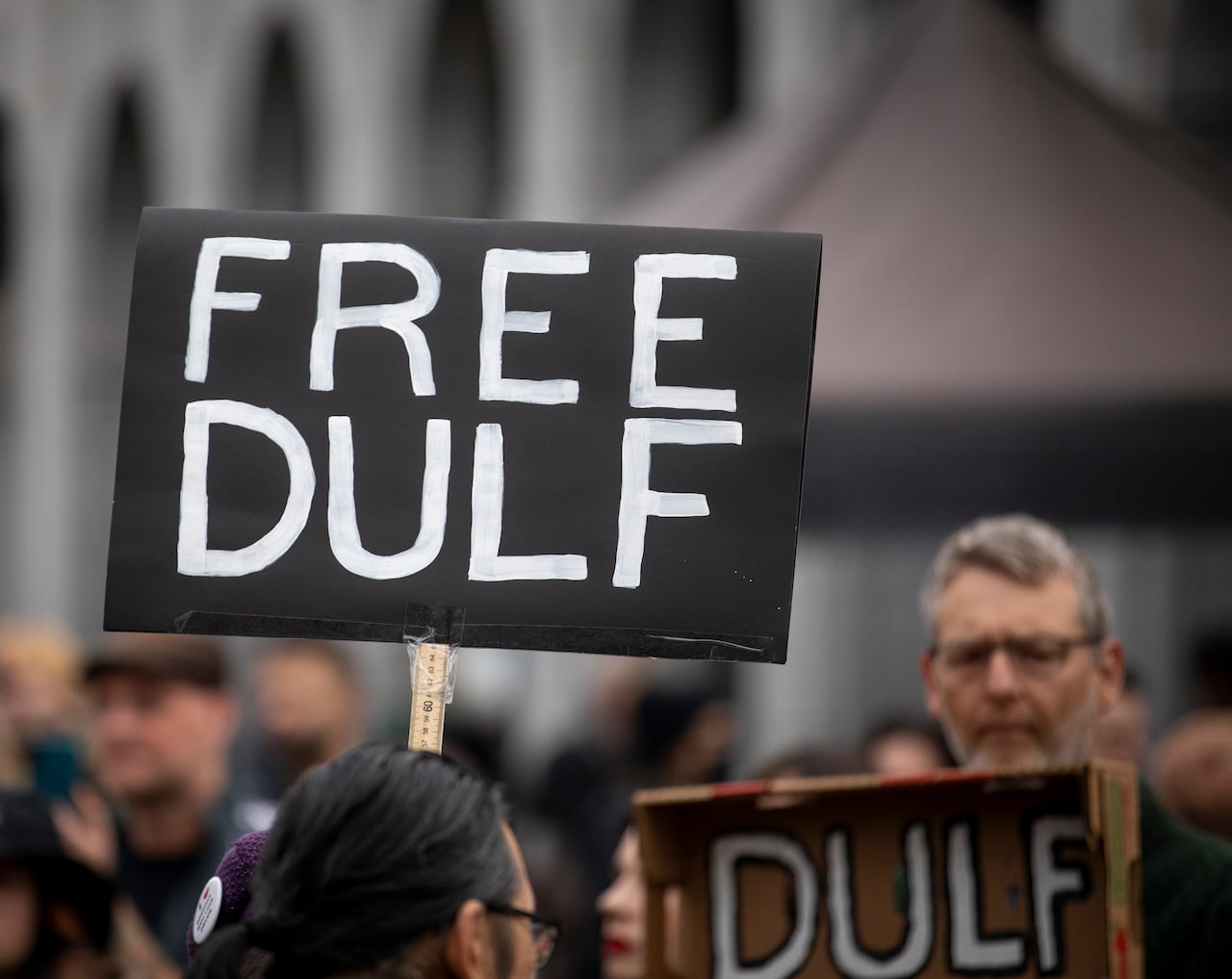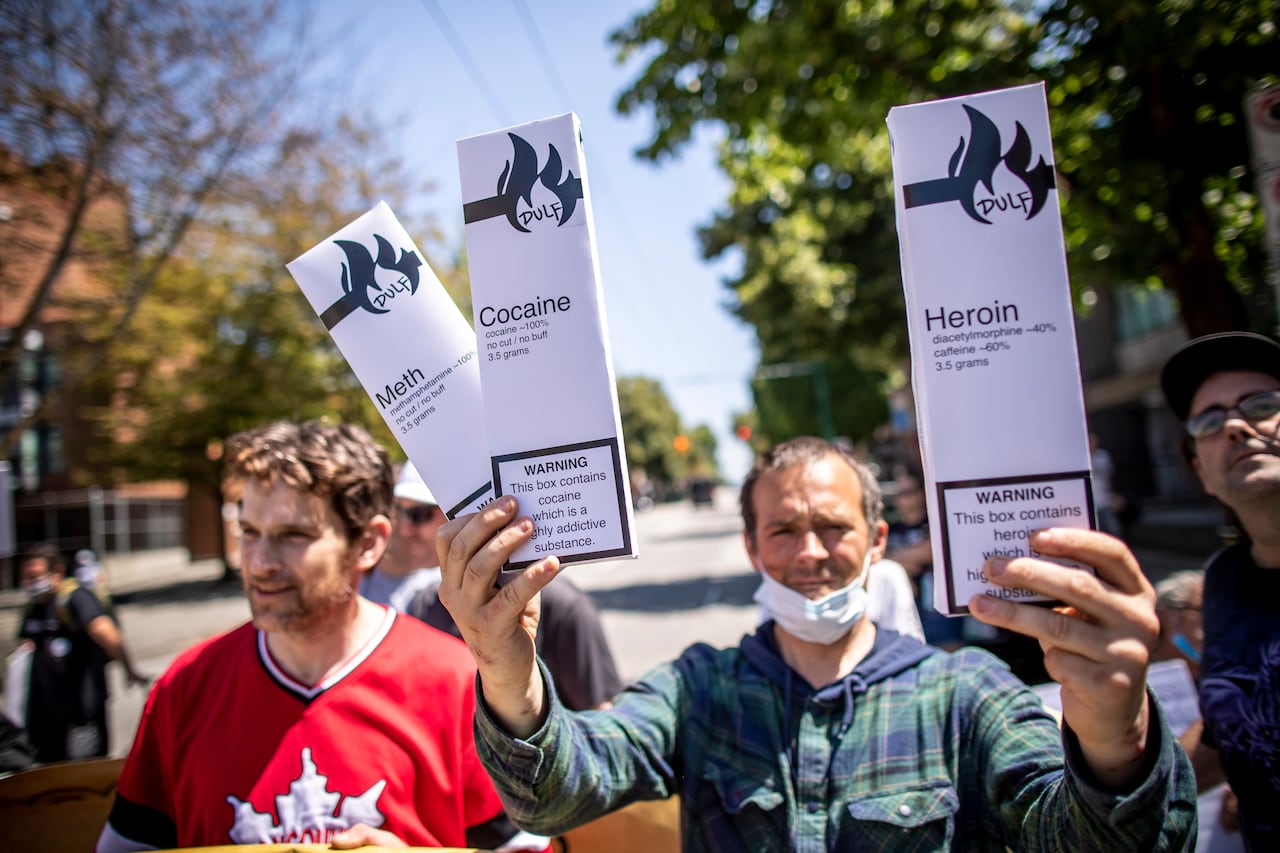Listen to this article
Approximately 4 minutes
The audio version of this article was created using text-to-speech, a technology based on artificial intelligence.
The co-founder of the Vancouver Drug Users Liberation Front (DULF) said he was surprised by Health Canada's lack of “urgency” regarding the deadly toxic drug crisis, and the lack of a pharmaceutical-grade supplier meant the club had to turn to the dark web to obtain pure substances.
Jeremy Calicum continued his testimony in a constitutional challenge to Canada's drug laws in the British Columbia Supreme Court on Wednesday.
Calicum, the public health researcher, said the club's initial collaboration with Health Canada proposed two models for its operation, with the preferred option being to purchase pharmaceutical heroin, cocaine and methamphetamine.
Under cross-examination by Crown lawyer Oren Bick, Calicum said DULF had hoped to find a way to acquire a pharmaceutical supplier, but “the current regulatory framework prevented them from doing so.”
Compassion Club co-founder Jeremy Calicum says group members have benefited from access to a predictable and uncontaminated supply of drugs such as heroin, cocaine and methamphetamine.
He told the court the group wanted to find a way to work with Health Canada to operate a drug “compassion club,” testing illicit drugs and supplying club members with high-purity substances to reduce overdoses.
“We were desperate to find a way to make it work,” he said.
Without the option of a licensed supplier, Calicum said another suggestion is to source drugs from the dark web.

He said Health Canada was “reluctant to engage with anyone on a public health proposal in the midst of the most serious public health emergency to hit British Columbia.”
“I am surprised by the lack of urgency and seriousness in considering this proposal,” he said.
Earlier on Wednesday the court heard the club's founders felt “invincible” and hoped media coverage of their activities would stimulate public dialogue.
But Calicum said he now believes the publicity led to their arrests.

He told the court that he and co-founder Eris Nix were uncomfortable speaking to the media, but that coverage of the club raised public awareness and was consistent with its principles of transparency and accountability.
The club received funding from Vancouver Coastal Health, which it said paid for drug testing, but drugs sourced from the dark web were purchased with donations and sold to members at cost.
Bick asked Calicum if he believed the club's media exposure, including a high-profile article in The Economist, carried with it a “higher risk of arrest.”

Calicum said they understand that publicity is risky and the agreements they made meant they had to be careful about what they told reporters.
“Part of our funding agreement is that we were silent about the tax exemption, we were silent about the availability of funding,” he said. “And I think what really upset us was the government interference.”
The court heard the compassion club operated from August 2022 to October 2023 and was given $200,000 in annual funding from the health authority for drug testing and overdose prevention services.
But DULF went further by purchasing and testing drugs for distribution to prevent overdoses.
Kalikum said that no medicines were purchased with health authorities' money, the purchases of medicines were financed by donations and sales were made by club members.
The co-founders were found guilty this month on charges of possessing drugs for the purpose of trafficking, but their sentencing was delayed until the constitutional challenge is decided.
Calicum told the court he now believes interaction with the media and bringing public attention to the club is what led to their arrests and he believes they were “thrown under the bus by several agencies.”
Bick questioned Kalicum about the data and research they collected and conducted on the more than three dozen club members with access to drugs and the club's website, and said they published information about the club to ensure transparency in their work.
A post on the DULF website dated March 3, 2025, said its lawsuit seeks to prove that the section of the Controlled Drugs and Substances Act that prohibits the possession of drugs for the purpose of trafficking is unconstitutional and “its enforcement is killing the very people it is intended to protect.”









